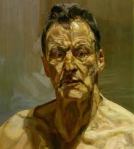 Today I went to see the MOMA exhibition by Francis Alÿs which is very aptly named A Story of Deception.
Today I went to see the MOMA exhibition by Francis Alÿs which is very aptly named A Story of Deception.
One of his works, When Faith Moves Mountains, was inspired by a phrase from the bible (Mark 11:23) when he asked a group of 500 volunteers to move a 1,600-foot sand dune just using shovels.
The work is neither a traditional sculpture nor an Earthwork, and nothing was added or built in the landscape. That the participants managed to move the dune only a small distance mattered less than the potential for mythmaking in their collective act; what was “made” then was a powerful allegory, a metaphor for human will, and an occasion for a story to be told and potentially passed on endlessly in the oral tradition. For Alÿs, the transitory nature of such an action is the stuff of contemporary myth. (The Guggenheim)
To go with the piece were some definitions of faith provided by Alÿs, which chime with my own views of religion :
The difference between faith and insanity is that faith is the ability to hold firmly to a conclusion that is incompatible with evidence, whereas insanity is the ability to hold firmly to a conclusion that is incompatible with evidence (William Harwood, Dictionary of Contemporary Mythology, London, 1st Books, 2002)
and
Faith is a means of by which one introduces resignation to the present, as an investment in the promise of an abstract future. This off course is the Catholic church par excellence.
I would also recommend his video Tornado where he literally runs into the eye of the storm :
For Alÿs, the dust storm suggests the imminent collapse of a system of government or of political order. The act of running into the storm, which we see repeated over and over again, also invites interpretation: is the artist no longer able to combat the chaos he encounters? Is he recognising the vanity of poetic gestures at a time of calamity? Or is it only within the chaos that he can challenge the turmoil around him?
Reaching the centre of the storm, the artist is breathless and almost blinded, yet he encounters a furtive moment of peace that could hint at a new moment of possibility. (BBC)








